Related Research Articles
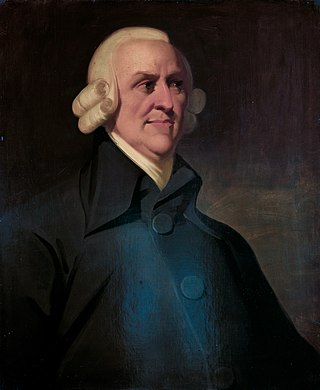
Adam Smith was a Scottish economist and philosopher who was a pioneer in the thinking of political economy and key figure during the Scottish Enlightenment. Seen by some as "The Father of Economics" or "The Father of Capitalism", he wrote two classic works, The Theory of Moral Sentiments (1759) and An Inquiry into the Nature and Causes of the Wealth of Nations (1776). The latter, often abbreviated as The Wealth of Nations, is considered his magnum opus and the first modern work that treats economics as a comprehensive system and as an academic discipline. Smith refuses to explain the distribution of wealth and power in terms of God's will and instead appeals to natural, political, social, economic and technological factors and the interactions between them. Among other economic theories, the work introduced Smith's idea of absolute advantage.
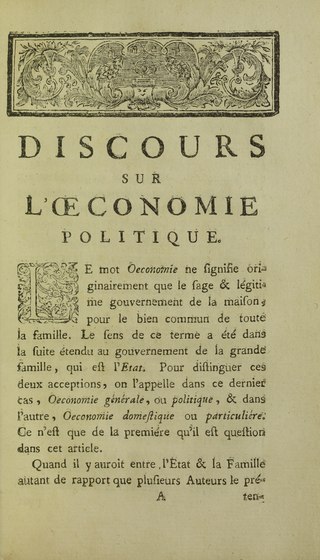
Political economy is the study of how economic systems and political systems are linked. Widely studied phenomena within the discipline are systems such as labour markets and financial markets, as well as phenomena such as growth, distribution, inequality, and trade, and how these are shaped by institutions, laws, and government policy. Originating in the 16th century, it is the precursor to the modern discipline of economics. Political economy in its modern form is considered an interdisciplinary field, drawing on theory from both political science and modern economics.
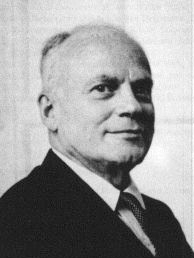
Jacob Viner was a Canadian economist and is considered with Frank Knight and Henry Simons to be one of the "inspiring" mentors of the early Chicago school of economics in the 1930s: he was one of the leading figures of the Chicago faculty. Paul Samuelson named Viner as one of the several "American saints in economics" born after 1860. He was an important figure in the field of political economy.

John Rogers Commons was an American institutional economist, Georgist, progressive and labor historian at the University of Wisconsin–Madison.

William Cunningham was a Scottish economic historian and Anglican priest. He was a proponent of the historical method in economics and an opponent of free trade.

Philosophy and economics studies topics such as public economics, behavioural economics, rationality, justice, history of economic thought, rational choice, the appraisal of economic outcomes, institutions and processes, the status of highly idealized economic models, the ontology of economic phenomena and the possibilities of acquiring knowledge of them.

Ronald MacDonald OBE is a Scottish economist with interests in a wide range of topics in International Finance and Macroeconomics and a considerable amount of his research focuses on the economics of exchange rates and currency regime choice. He is currently Research Professor of Macroeconomics and International Finance at the Adam Smith Business School in the University of Glasgow.
Ronald Lindley Meek was a Marxian economist and social scientist known especially for his scholarly studies of classical political economy and the labour theory of value. During the 1960s and 1970s, his writings had a strong influence on the Western academic discussion about Marx's economic theory.

Palgrave Macmillan is a British academic and trade publishing company headquartered in the London Borough of Camden. Its programme includes textbooks, journals, monographs, professional and reference works in print and online. It maintains offices in London, New York, Shanghai, Melbourne, Sydney, Hong Kong, Delhi, and Johannesburg.
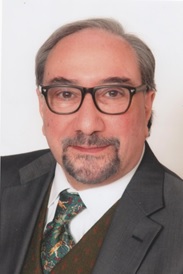
Homa Katouzian is an economist, historian, sociologist and literary critic, with a special interest in Iranian studies. Katouzian's formal academic training was in economics and the social sciences but he concurrently continued his studies of Persian history and literature at a professional academic level. He began studying the life and works of the modern Persian writer, Sadeq Hedayat, and that of the Prime Minister of Iran in the early 1950s, Mohammad Mosaddeq, while still a faculty member in the department of economics at the University of Kent at Canterbury. Having taught economics at universities in Britain and other countries for eighteen years, he took voluntary retirement in 1986 to devote his entire time to Iranian studies. In recent years, he has been teaching and writing on classical Persian literature, in particular the 13th-century poet and writer, Sa‘di. Currently based at the University of Oxford, Katouzian is a member of the Faculty of Oriental Studies and the Roshan Institute Academic Visitor in Iranian Studies at St. Antony's College, where for thirteen years he edited the bimonthly Iranian Studies, the journal of the Association for Iranian Studies. He is editor of the International Journal of Persian Literature, and co-editor of Routledge's Iranian studies book series. He is also a former member of the editorial board of Comparative Studies of South Asia, Africa and the Middle East and Comparative Economic Studies.
James Bonar was a Scottish civil servant, political economist and historian of economic thought. He was born in Perth but brought up, from the age of four, in Glasgow where his father was a Church of Scotland Minister. This clerical background extends to two uncles, both ministers who 'came out' in the disruption of 1843, both later serving terms as Moderator of the Free Church General Assembly. From Glasgow Academy Bonar graduated MA in Mental Philosophy from Glasgow University in 1874. He followed the same lengthy undergraduate career that Adam Smith pursued more than a century before gaining a Snell Exhibition to Balliol College, Oxford from which he graduated with a first in 1877.
Beatrice Heuser, is a historian and political scientist. She holds the chair of International Relations at the University of Glasgow.
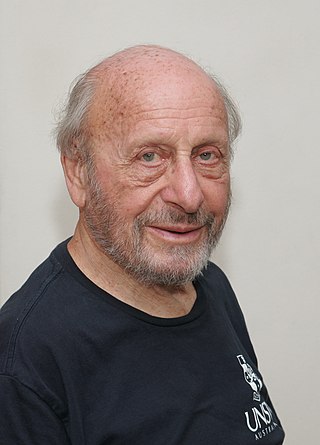
Geoffrey Colin Harcourt was an Australian academic economist and leading member of the post-Keynesian school. He studied at the University of Melbourne and then at King's College, Cambridge.

Murray Milgate, is an Australian-born academic economist and Sometime Fellow and director of studies in economics at Queens' College in the University of Cambridge, where he is now a Life Fellow. He is the co-creator and co-editor of the celebrated original edition of The New Palgrave Dictionary of Economics (1987) together with John Eatwell and Peter Newman.
Shannon C. Stimson is an American political theorist and historian of ideas, whose more recent work and teaching spans the economic and political thought of the early modern period through the nineteenth century. She is the Thomas and Dorothy Leavey Chair in the Government department at Georgetown University. Her academic posts have included appointments at Harvard University (1984-1991), UC Berkeley (1991-2014), the Fulbright Professorship in the United Kingdom, the Christensen Fellowship of St. Catherine's College, Oxford, the John K. Castle Chair in Ethics, Politics and Economics at Yale University and she has been a Distinguished Academic Visitor at Queens' College, Cambridge on two occasions. Her research has been supported through fellowships from the Mellon Foundation, the National Endowment for the Humanities, the American Association of University Women, as well as by several prize fellowships. Her articles have appeared in numerous edited volumes, journals of political thought, economics, the history of economic thought, and political science in America and Europe. She has served on the editorial boards of the American Political Science Review, the Adam Smith Review, and the Journal of Politics.
Alan Oliver (Lanny) Ebenstein is an American political scientist, educator and author, known from his biographical works on Friedrich Hayek and Milton Friedman.
The Bank Notes (Scotland) Act 1765 was an Act of the Parliament of Great Britain that introduced restrictions on the use of banknotes by the Scottish banks. The act was from the Fourth Session of the Twelfth Parliament of Great Britain at Westminster; beginning May 19, 1761 and lasting until January 10, 1765.

Tyler Beck Goodspeed is an American economist and economic historian who was the acting chairman of the Council of Economic Advisers from June 2020 to January 2021. He resigned from his position on January 7, in the wake of the 2021 storming of the United States Capitol.
Tony Aspromourgos is an Australian historian of economic thought, professor at the University of Sydney and a Fellow of the Academy of the Social Sciences in Australia (ASSA). He has published several books and many articles in economic journals on different subjects concerning the history of economic thought, especially on William Petty, Richard Cantillon and Adam Smith.
Andreas Ortmann is a German-born economist and Professor of Experimental and Behavioural Economics at the UNSW Business School. He is best known for his work on experimental methodology in social sciences, heuristics and coordination games. Vernon L. Smith, in the acknowledgement to his A Life in Experimental Economics, described Ortmann as an "economic theorist, experimentalist, and intellectual historian par excellence in all".
References
- ↑ Aspromourgos, Tony (June 2014). "Donald Rutherford, In the Shadow of Adam Smith: Founders of Scottish Economics 1700–1900 (Basingstoke, UK: Palgrave Macmillan, 2012), pp. vii, 344, US$95 (hb), US$40 (pb). ISBN 978-0-230-25209-7 (hb); 978-0-230-25210-3 (pb)". Journal of the History of Economic Thought. 36 (2): 253–255. doi:10.1017/S105383721400025X. ISSN 1053-8372. S2CID 153389878.
- ↑ "Donald Rutherford, In the Shadow of Adam Smith: Founders of Scottish Economics 1700-1900". The History of Economic Thought. 56 (1): 132–134. 2014. doi: 10.5362/jshet.56.1_132 .
- ↑ Saether, Arild (2017). Natural Law and the Origin of Political Economy: Samuel Pufendorf and the History of Economics. Taylor & Francis. p. 263. ISBN 9781317207702.